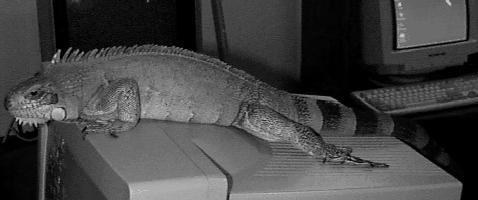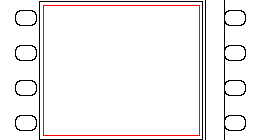
©1995-2001, Evans A Criswell
2:1 Anamorphic Squeeze (Scope) Format
The use of a 2:1 anamorphic attachment to optically squeeze a wider image
into the image area of the film when
shooting, then optically unsqueeze it when projecting, was the first
method that gained widespread popularity. The first movie to be made in this
format, under the trade name "Cinemascope", was "The Robe" in 1953.
This method is still used for many movies today, under the name "Panavision",
as well as others.
The aspect
ratio of Cinemascope, after standardization, was 2.35:1. This was the aspect
ratio for all 35mm 2:1 anamorphic films until 1971, when the aperture height
was reduced slightly to keep splices out of the image area being projected,
making the apsect ratio 2.39:1.
Here is how it works.
Consider the following "scene" that is to be filmed.
 |
| The desired "scene" to be filmed. |
 |
| The image, squeezed by 2 to fit on the film! |
 |
Scope film format
Camera aperture (black): 0.864" by 0.732"
Projector aperture (red): 0.825" by 0.690" |
 |
| The image on the film. |
 |
| Unstretched by 2 during projection for movie screen! |
Site created February 9, 1998
















